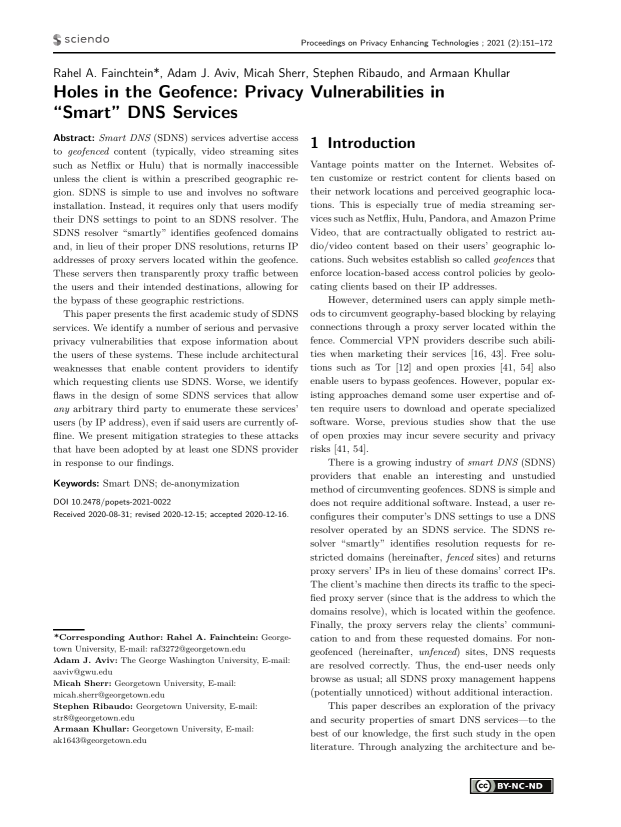Holes in the Geofence: Privacy Vulnerabilities in “Smart” DNS Services
Authors: Rahel A. Fainchtein (Georgetown University), Adam J. Aviv (The George Washington University), Micah Sherr (Georgetown University), Stephen Ribaudo (Georgetown University), Armaan Khullar (Georgetown University)
Volume: 2021
Issue: 2
Pages: 151–172
DOI: https://doi.org/10.2478/popets-2021-0022
Abstract: Smart DNS (SDNS) services advertise access to geofenced content (typically, video streaming sites such as Netflix or Hulu) that is normally inaccessible unless the client is within a prescribed geographic region. SDNS is simple to use and involves no software installation. Instead, it requires only that users modify their DNS settings to point to an SDNS resolver. The SDNS resolver “smartly” identifies geofenced domains and, in lieu of their proper DNS resolutions, returns IP addresses of proxy servers located within the geofence. These servers then transparently proxy traffic between the users and their intended destinations, allowing for the bypass of these geographic restrictions. This paper presents the first academic study of SDNS services. We identify a number of serious and pervasive privacy vulnerabilities that expose information about the users of these systems. These include architectural weaknesses that enable content providers to identify which requesting clients use SDNS. Worse, we identify flaws in the design of some SDNS services that allow any arbitrary third party to enumerate these services’ users (by IP address), even if said users are currently offline. We present mitigation strategies to these attacks that have been adopted by at least one SDNS provider in response to our findings.
Keywords: Smart DNS; de-anonymization
Copyright in PoPETs articles are held by their authors. This article is published under a Creative Commons Attribution-NonCommercial-NoDerivs 3.0 license.

